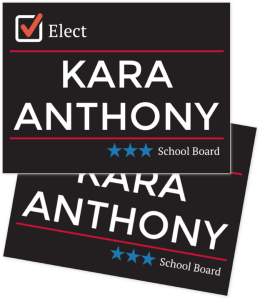When assembling your political campaign team, it’s critical to consider several factors to ensure you have the right people. It’s not always about the how, but often about the who. Pick people who can contribute effectively to your campaign’s success. Here are some key considerations:
1. Alignment with Your Vision and Values
Ensure that potential team members align with your campaign’s vision and values. Shared beliefs and commitment to your political goals are essential for a cohesive and dedicated team.
2. Relevant Experience
Evaluate candidates’ prior experience in political campaigns, advocacy, or related fields. Experience can provide valuable insights and skills that can be applied to your campaign.
3. Skills and Expertise
Identify the specific skills and expertise needed for various roles on your campaign team. These may include communication skills, data analysis, fundraising, digital marketing, event planning, and grassroots organizing.
4. Diversity and Inclusivity
Aim for a diverse team that reflects the demographics and interests of your constituency. Diverse campaign teams can better understand and connect with a broad range of voters.
5. Teamwork and Collaboration
Look for individuals who are team players and can collaborate effectively. The ability to work cohesively with others is critical for a successful campaign.
6. Adaptability and Resilience
Campaigns can be unpredictable, and challenges are common. Seek team members who are adaptable, resilient, and able to navigate changing circumstances with grace and determination.
7. Commitment and Availability
Ensure that potential team members have the time and availability to commit to the campaign’s demanding schedule. Full-time campaigns often require significant time and effort.
8. Communication Skills
Effective communication is vital in politics. Campaign team members should be able to articulate your campaign’s message clearly and engage with voters, the media, and stakeholders.
9. Local Knowledge and Networks
In regional or local campaigns, consider candidates with local knowledge and established networks in the community. They can provide valuable insights and connections.
10. Passion and Enthusiasm
Passionate individuals who believe in your cause are more likely to be motivated and dedicated to the campaign. Their enthusiasm can be infectious and inspire others.
11. Analytical and Strategic Thinking
Campaigns involve making strategic decisions based on data and insights. Team members with strong analytical and strategic thinking skills can help shape effective campaign strategies.
12. Leadership Potential
Identify individuals who show leadership potential within your team. They can take on important roles and responsibilities, leading campaign efforts in various areas.
13. Commitment to Learning and Growth
Encourage campaign team members to be open to learning and personal growth throughout the campaign. Willingness to adapt and improve is valuable in a dynamic campaign environment.
14. Ethical Conduct
Ensure that all team members adhere to ethical standards and campaign laws. Upholding ethical conduct is essential to maintaining your campaign’s reputation and integrity. Consider implementing trial periods or probationary periods for certain roles. This allows you to assess a candidate’s fit within the team and their performance before making a long-term commitment.
15. References and Background Checks
Request references and conduct background checks when necessary to verify qualifications and ensure the trustworthiness of potential team members.
By carefully considering these factors and conducting a thorough selection process, you can assemble a campaign team that is not only skilled but also aligned with your vision, values, and goals, setting the stage for a successful political campaign.

